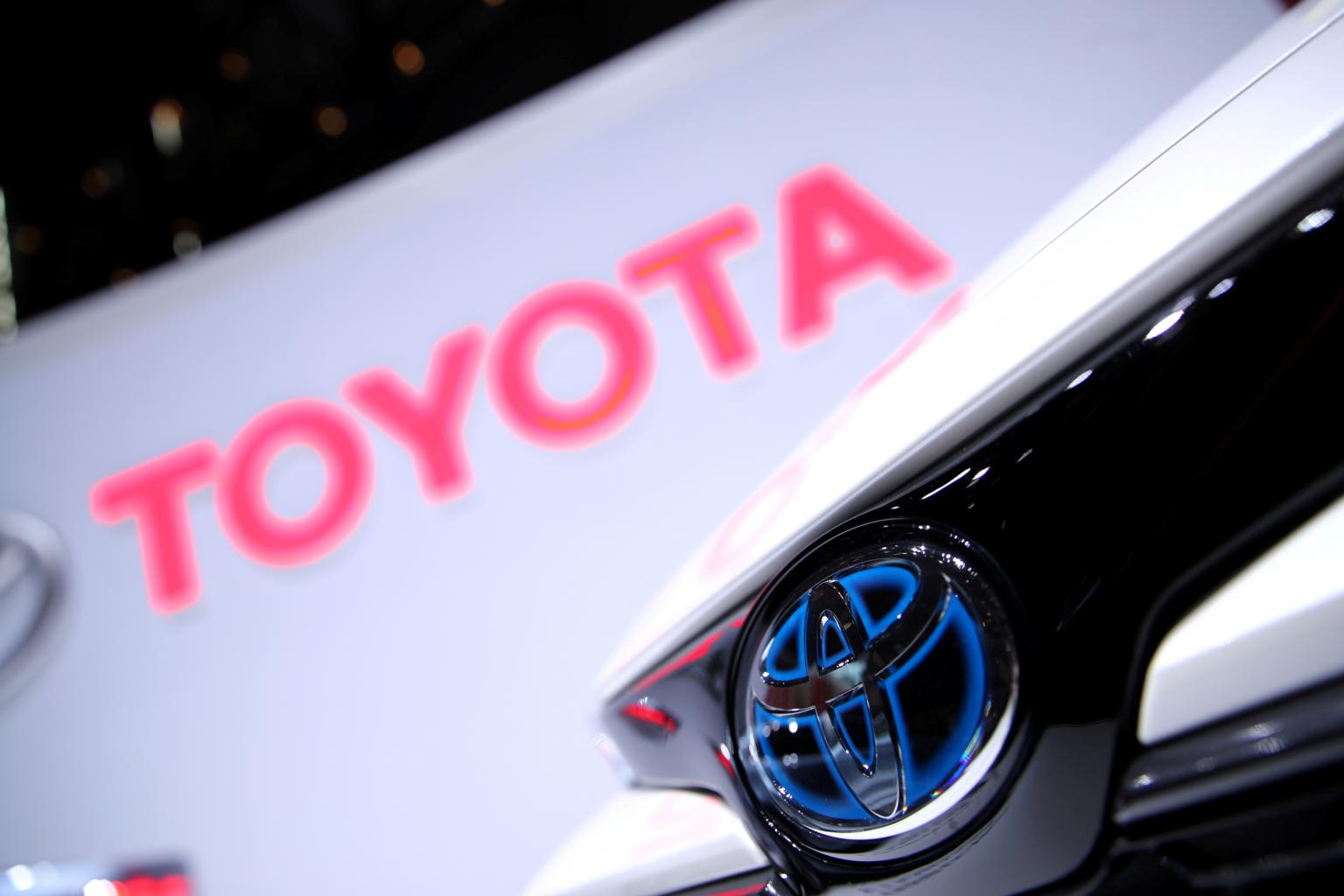How a single Covid-19 case rocked the world's biggest carmaker
Sign up now: Get ST's newsletters delivered to your inbox

Toyota shocked the market by announcing it would slash its output of cars in September by 40 per cent.
PHOTO: REUTERS
TOKYO (BLOOMBERG) - Early last month at a sprawling factory on the highway connecting Hanoi to the Vietnamese port city of Haiphong, a single worker tested positive for Covid-19. The Delta variant was spreading swiftly through the South-east Asian nation at the time, and on Aug 4, provincial officials suspended work at the plant, run by an auto parts manufacturer.
An ocean away, Toyota Motor chief purchasing group officer Kazunari Kumakura was watching intently. The factory is operated by a key Toyota supplier and is one of Vietnam's biggest assemblers of wire harnesses - a basic but essential yoke for cables that holds the inner workings of a car together. As the infection at the facility disrupted operations, Toyota's inventories grew thin. Since July, the Japanese automaker had been examining its suppliers in the region, which has become a Covid-19 hot spot, on a daily basis to assess how dire things were getting.
Eventually, unable to secure a number of parts, including the wire harnesses from Vietnam and chips from Malaysia, Toyota succumbed. The world's No. 1 automaker shocked the market by announcing it would slash its output of cars in September by 40 per cent compared with previous production plans.
Toyota is now faced with the challenge of securing substitute parts and recovering lost output in time to meet an inventory-depleting level of global demand for cars. But, more broadly, the snarls that finally toppled one of the world's best-maintained supply chains have sparked deeper questions about whether the auto industry's strategies to prioritise efficiency and maintain minimal inventory will endure in the post-pandemic world.
Carmakers globally have lost revenue because shortages have slammed output. India's largest automaker by deliveries, Maruti Suzuki India, said volume would likely drop to about 40 per cent of normal this month and Tata Motors on Wednesday blamed "the recent lockdowns in East Asia" for worsening the supply situation. China's Nio has struggled with partners in Malaysia. Also in Japan, Suzuki Motor will cut vehicle production by 20 per cent this month while in Europe, Renault plans to halt assembly plants in Spain for as long as 61 days before the end of the year.
External Shocks
The car sector is accustomed to much thinner profit margins than those enjoyed by big technology companies, even after decades of trying to drive down costs, said Professor of Management Howard Yu at the Switzerland-based Institute for Management Development. Automakers strive to be lean, reducing redundancies and working out of regional hubs because it is more efficient, he said. "But to be resilient, you need a bit of redundancy. The Delta outbreak is exposing that this system is really vulnerable to external shocks."
Over the past decade, Japanese automakers have invested heavily in South-east Asia, looking to the region as a source of cheap labour and to supplement their China operations amid trade tensions with the United States. Thailand is a major production hub for Toyota, Mitsubishi Motors, Honda Motor and Nissan Motor. Those automakers make up about half of Thailand's vehicle production capacity and source a number of parts from neighbouring countries. Toyota alone works with suppliers that have more than 400 plants located in Malaysia and Vietnam, data compiled by Bloomberg shows.
That concentrated approach worked, until it did not. Midway through this year, South-east Asia began to grapple with one of the world's deadliest virus resurgences. Governments declared lockdowns and restricted business activities, at times halting entire plant operations upon the discovery of just a handful of confirmed cases.
Striking a Balance
For now, automotive suppliers in the nations are showing signs of getting on a path to recovery. Most staff at Sumitomo Electric's Hai Duong wire harness plant returned to work by around the second week of last month, according to the province's official television station. As at last week, Malaysia's chipmakers were essentially back to normal levels of operation and Toyota has said it expects to begin to recover lost production next month.
The question remaining is whether this supply chain disruption will spark a long-term shift at Toyota and other manufacturers' operations. Toyota was a pioneer of the so-called just-in-time system, a manufacturing workflow methodology aimed at reducing flow times and costs by keeping inventories super lean.
In the end, it comes down to striking a balance between efficiency and resilience, said Prof Yu. Certain parts do not seem critical until they "blow up production systems" because there are limited suppliers concentrated in a particular region. In a good quarter, dipping into profit to invest in rainy-day resilience is "what long-term perspective is about", he said. "And this isn't just a story of Toyota."


